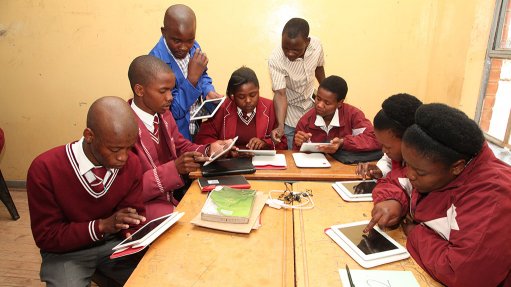
NEXT-GENERATION WORKFORCE
Workers in 15 to 20 years’ time must be taught how to be interpreters and translators between the digital world and the real world
Photo by: CSIR Meraka
Children currently in primary school will not be expected to master specific skills once they enter the workplace, but apply knowledge and design new systems and solutions, says consulting engineering firm Aurecon digital advisory leader Gavin Cotterill.
Workers in 15 to 20 years’ time must be taught how to be interpreters and translators between the digital world and the real world. This will be true of all disciplines, including engineering.
The digital age is reshaping industries worldwide. A sustained move away from many traditional skills and trades will be needed to keep pace with the Fourth Industrial Revolution, which demands new roles and new skills, and will fundamentally alter the way we live, work and relate to one another.
“Parents and teachers would do well to ensure that today’s children not only are taught the theory behind how things work, but are also taught to use this theory to evolve and test their assumptions and systems. Tomorrow’s success will belong to the innovators,” he adds.
The ‘digital natives’ generation will be required not only to understand data and technology, but also collaborate and apply it in new and creative ways.
Understanding data and technological principles is a given; designing self-learning machines and robots is a different skill altogether, Cotterill adds.
“Success will depend on an insatiable desire to learn about new technologies and apply them. The children who understand this will go on to be the early adopters of technology and will push the boundaries of applying it to their advantage,” avers Cotterill.
Collaborative behaviours to work in a data-driven world will be a key requirement. Social networks have demonstrated the power of connecting people with open and free forms of communication.
Reputations can be built or destroyed in seconds, and the concept of community has evolved to include online relationships that enable people to collaborate and share across physical and geographical boundaries. Tomorrow’s leaders will need to understand the power of good relationships, online and otherwise, as well as the power of leveraging these connections, he notes.
“We must ensure that we continue to update the principles we teach and embrace the attitudinal requirements of new roles. This ‘toolkit’ will stand children, and parents, in good stead, enabling them to stand on the shoulders of the current giants of the digital world,” emphasises Cotterill.